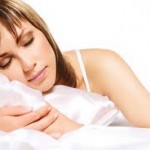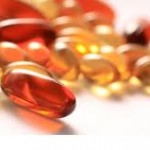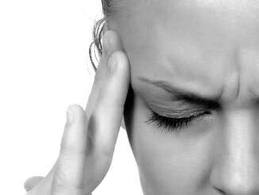Cluster headaches or sometimes called as the alarm clock headache because it normally makes you wake up in the middle of the night with extreme pain in or just about the eye on one area of the head. Cluster headaches take place in recurring or cyclical pattern and it is considered as the most causing severe pain type of headache. The short period of recurrent attacks or also called cluster periods may experience from weeks to months, generally followed by remission stages once the headache episodes bring to an end totally. All through the remission, there is no attack of headaches take place for several months and at times even in years. The good thing about cluster headache is it is uncommon and considered a non life-threatening illness. There are treatments available that can be very helpful to make the attacks of cluster headaches shorter and less severe. There are also medications that can help to lessen the number of cluster headaches.
What are the signs and symptoms of cluster headache?
The usual signs and symptoms of cluster headaches may include the following.
- Terrible pain, commonly situated in or just about the eye, but may spread out to other part of the face, head, neck and shoulders.
- One-sided part of pain
- Restlessness
- Too much tearing
- Redness in the eye of the affected part
- Runny or stuffy nasal passageway in the nostril on the affected part of the face
- Perspiring and paleness of the face
- Inflammation in the region of the eye on the affected part of the face
- Reduced size of the pupil
- Drooping eyelid
The pain of cluster headaches can be described as quick, piercing or burning. People that had experienced cluster headaches ma described the feeling as if the eye is being pressed out of its socket. People affected with cluster headache come out to be restless just to ease the attack. Unlike with the people having migraine, people affected with cluster headache normally stay away from lying down all through the attack since this position tend to enhance the pain. Some of the symptoms of migraine headache like sensitivity to light and sound, and aura, nausea may also take place with a cluster headache, although generally on one part one.
What are the causes of cluster headaches?
- Unfortunately, the exact cause of cluster headaches is still not known. However, there are medical researches that the abnormalities in the hypothalamus may possibly play a part. Episodes of cluster headache normally happen with clocklike regularity all through a 24-hour day, and the cycle of cluster episode regularly goes after the seasons of the year. These patterns may imply that the human body’s biological clock is concerned. This biological clock is in the hypothalamus, which is situated in the center of the brain. There are medical studies discovered that all through the attack of cluster headache there is an increase of activity in the hypothalamus that take place.
- Cluster headaches normally not related with triggers like hormonal changes, foods and stress. However, once the cluster episode had started, intake of any alcohol can rapidly cause the splitting headache. So, people affected with cluster headache should avoid alcohol for the period of cluster episode. Nitroglycerin medication can also trigger cluster headaches.
What is the risk factors affecting cluster headaches?
- Men are more prone to develop cluster headaches than women.
- Cluster headaches can occur at any age but mostly affected with it are the people aged in their late 20s.
- People who smoke are the one greatly affected with cluster headaches.
- People who make use of alcohol may trigger the attack if you are already at risk of cluster headache.
- If one of the family members has cluster headaches, you may possibly develop also.
What are the home remedies for cluster headaches?
1.    Stick with the normal sleep routine.
 Cluster headaches may begin once changes in normal sleep routine takes place. All through the period of cluster headaches, prefer the regular sleep schedule or routine.
Cluster headaches may begin once changes in normal sleep routine takes place. All through the period of cluster headaches, prefer the regular sleep schedule or routine.
2.    Avoid intake of alcohol.
 Do not make use of alcohol, either beer or wine for it do trigger cluster headaches almost at all times. It can take place so hastily, even prior to your first drink has end.
Do not make use of alcohol, either beer or wine for it do trigger cluster headaches almost at all times. It can take place so hastily, even prior to your first drink has end.
3.    Avoid Stress.
 Try to avoid stress for it can trigger cluster headaches. There are stress-relief techniques that may reduce the pain during the episode of cluster headaches and may also lessen the attack. These may include yoga, meditation and other breathing workouts.
Try to avoid stress for it can trigger cluster headaches. There are stress-relief techniques that may reduce the pain during the episode of cluster headaches and may also lessen the attack. These may include yoga, meditation and other breathing workouts.
4.    Intake of melatonin and magnesium supplements.
 Most people affected with cluster headaches are diagnosed with deficiency in melatonin and magnesium. Intake of these supplements may help to lessen the frequency of cluster headaches as well as the pain. Consult your doctor if this may be applicable to your condition.
Most people affected with cluster headaches are diagnosed with deficiency in melatonin and magnesium. Intake of these supplements may help to lessen the frequency of cluster headaches as well as the pain. Consult your doctor if this may be applicable to your condition.
5.    Seek help from counselor or therapist.
 One way to handle the effects of cluster headaches is to talk with the counselor or therapist. They may give you courage to manage with this illness and help you to learn more of the information of this type of headaches. They may also recommend you to join group wherein the members share with their experiences.
One way to handle the effects of cluster headaches is to talk with the counselor or therapist. They may give you courage to manage with this illness and help you to learn more of the information of this type of headaches. They may also recommend you to join group wherein the members share with their experiences.
Â
Cluster headaches can be very hard for the person affected with it. Patience and support from the family members can be very helpful for the person experiencing cluster headaches. Do not hesitate to ask your doctor or therapist that can provide full information about the cluster headaches.
